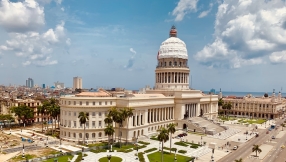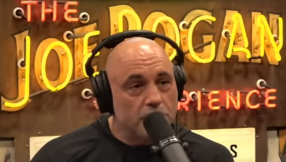A growing number of Catholics are now questioning their commitment to the Church in the wake of the recent sexual abuse scandal involving young people and priests, a new Gallup poll has found.
The poll, which was published on Tuesday, shows that 37 percent of U.S. Catholics, a 15 percent increase since the last sexual abuse scandal in 2002, are currently questioning whether they should stay with the church body.
The results of the poll are based on telephone interviews with a random sample of 581 Catholics conducted January 21-February 28 and has a margin of sampling error of ±5 percentage points.
While many more Catholics are questioning their commitment to the church since the 2002 scandal, there was no clear data to suggest whether or not the recent revelations of widespread abuse will cause them to ultimately leave the church.
Jeff Jones, Gallup Poll senior editor, told The Washington Post that the recent polling results are a clear indication of the "frustration" many Catholics are currently dealing with in the wake of the latest scandal.
"As an indication of frustration, it seems like a pretty significant step," said Jones about Catholics who are thinking of leaving. "Leaving is another one, and we don't have good data on that. But it does give a sense of the impact [the scandal] is having. And that the impact is greater than it was in 2002."
Last summer, the Pennsylvania Attorney General's Office released the results of a two-year grand jury investigation into widespread sexual abuse of children within six dioceses of the Catholic Church in that state that also showed systemic cover-up by senior church officials in Pennsylvania and at the Vatican.
Sister Joan Chittister, a Benedictine nun from Erie, Pennsylvania, who has authored several books about the turmoil caused by sex abuse scandals, suggested in a recent NPR interview that Catholics can use Lent to help them recenter their faith in the wake of the recent revelations.
She also suggested that even though people are angry, people shouldn't allow their anger to harm others.
"It doesn't bother me that people are angry, as long as their anger does not harm other people, but works for good in society, then I consider that anger the grace of God. Anger is a holy fuel. If you use it right, and you don't let it get out of control in your life, anger is what can drive you to do good in the face of evil," she said.
John Capparelli, 70, a former New Jersey priest who had been "credibly accused" of sexually abusing minors, was found shot dead in his Nevada home on Saturday, NBC News reported.
His name had appeared on a list in February with 187 other clergy the Roman Catholic Archdiocese of Newark said had been "credibly accused" of abusing minors the report said. While he was never convicted of a crime, he was laicized and permanently removed from ministry. Capparelli reportedly groped teenage boys and made them wrestle in swimwear while he took photos of them. He also allegedly ran a fetish website from his home.
"People are dismayed by their institutions, are broken-hearted about what they see happening in the structures of the church. That's a holy concern. But what they must also do, what we must also do, starting with me, is we have to separate the concerns of the institution from the spiritual life and the following of Jesus. We have to get back to the center of the faith," Sister Chittister warned.
The Gallup poll showed that while substantial minorities of both practicing and non-practicing Catholics say they are questioning their commitment to the church, those less committed to the religion are more likely to be questioning it. A similar pattern existed in 2002 but both practicing and non-practicing Catholics are more likely now than in 2002 to be questioning their place in the church.
Catholics are also less confident in priests in the U.S. more generally, and in U.S. bishops and other Catholic leaders. Approximately one in four U.S. Catholics say they have very little or no confidence in those two groups. One in eight has little or no confidence in Pope Francis or their own priests.
Courtesy of The Christian Post













